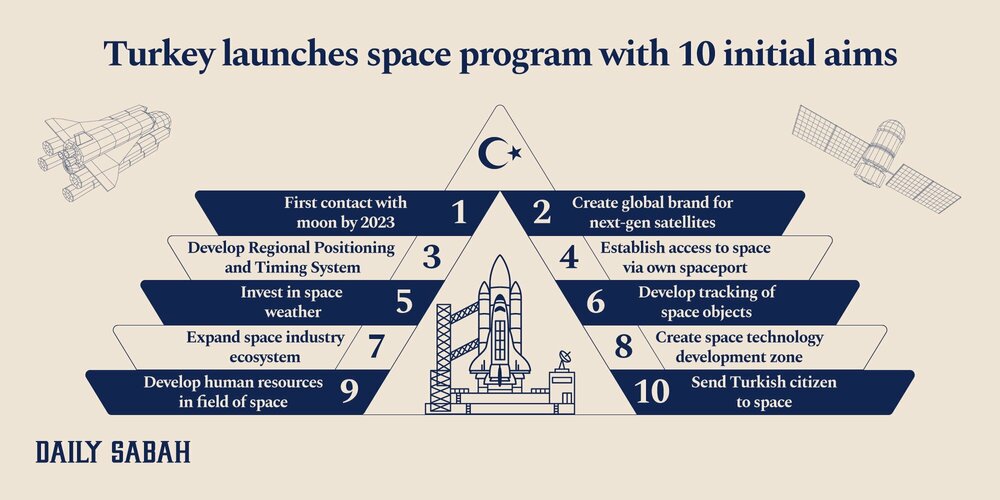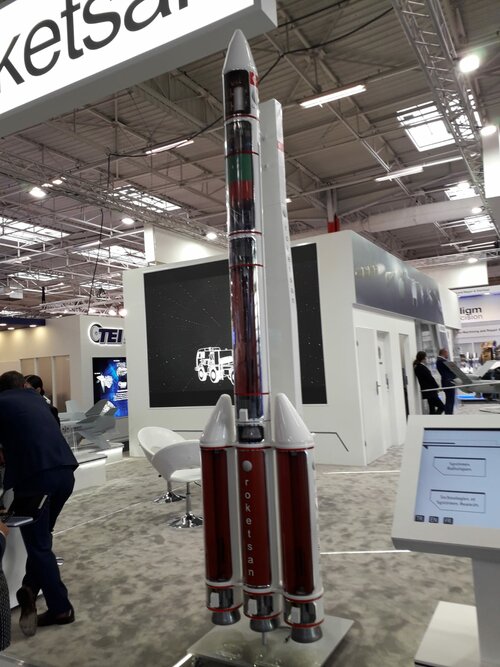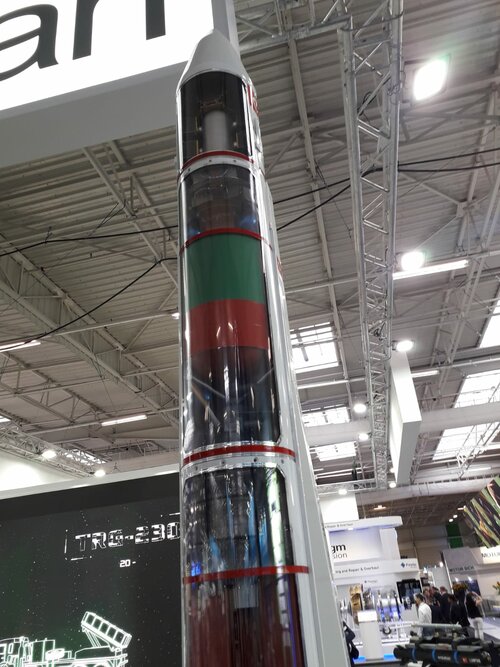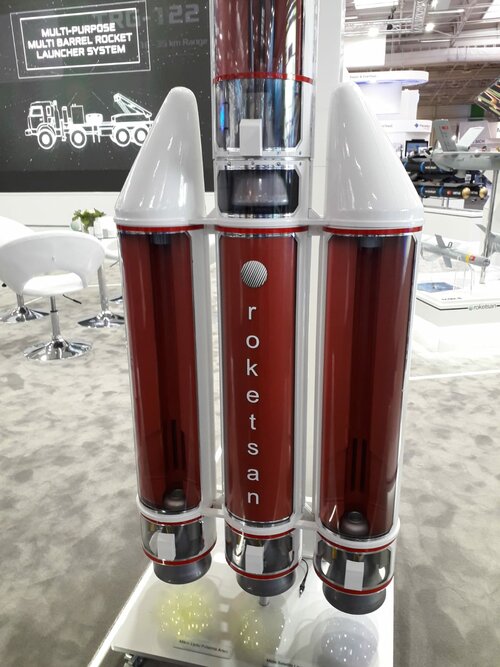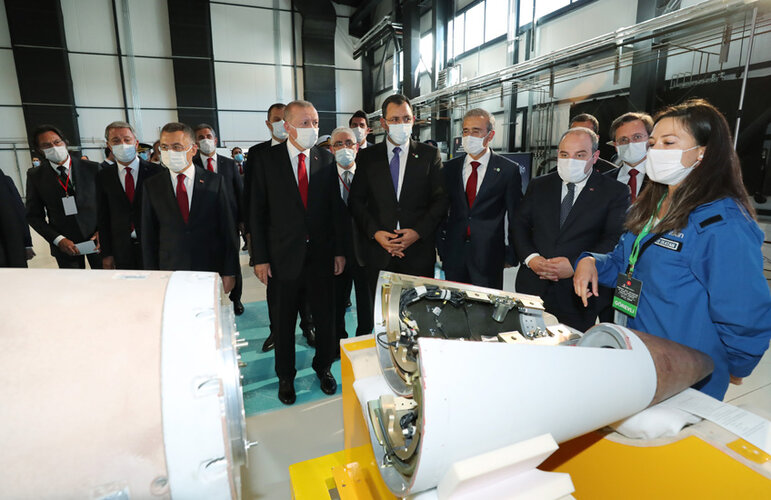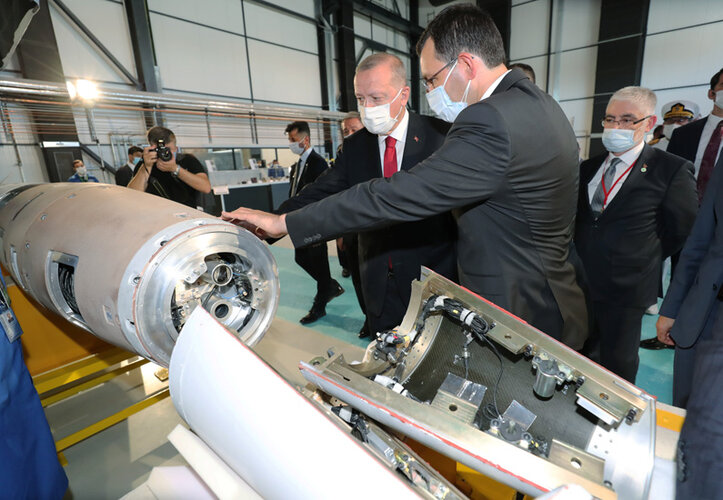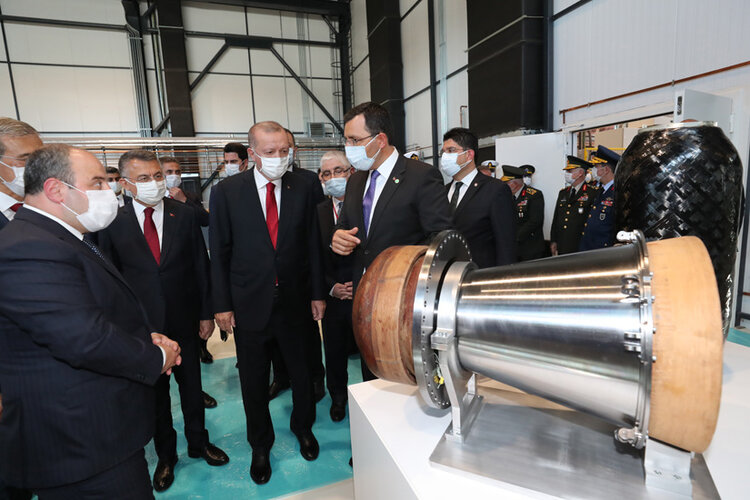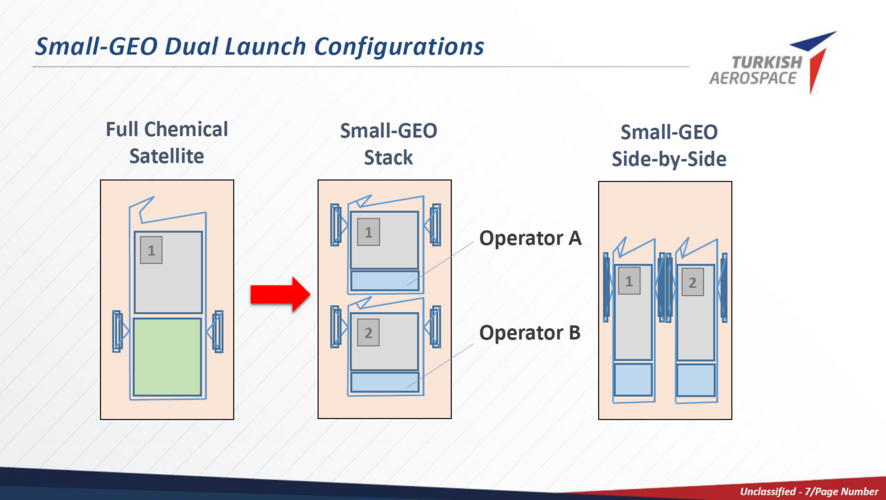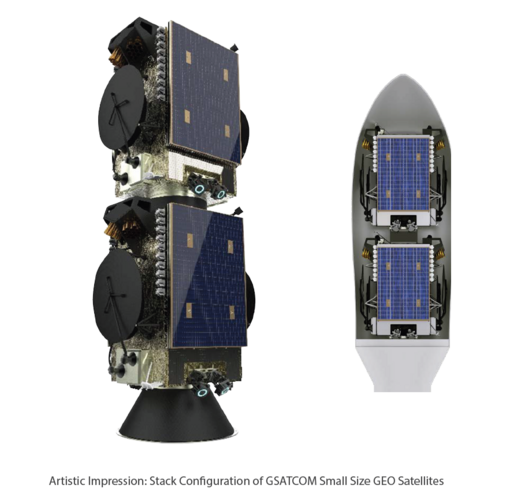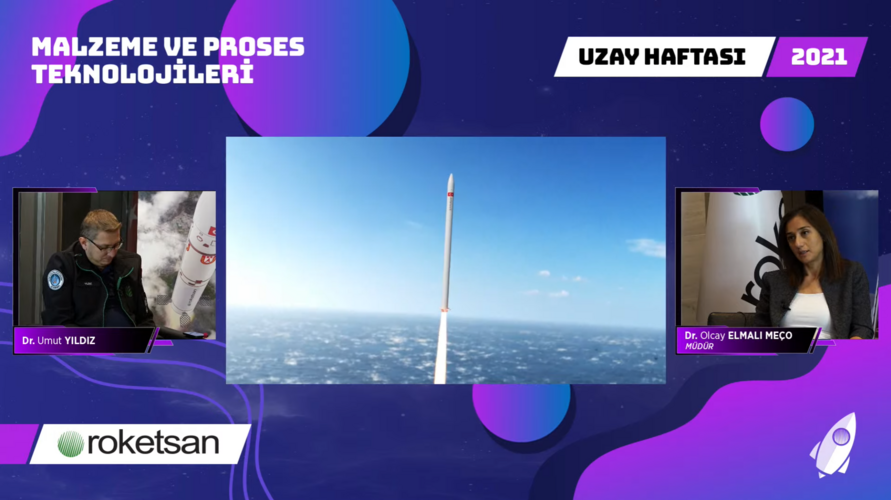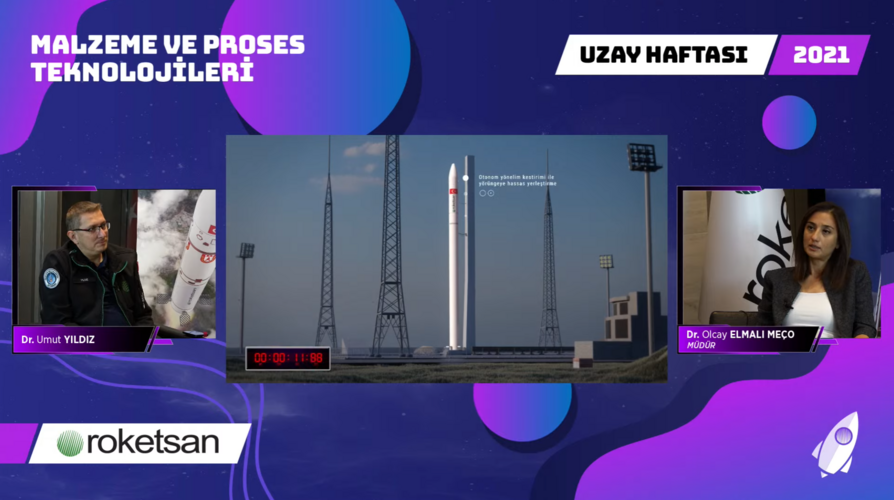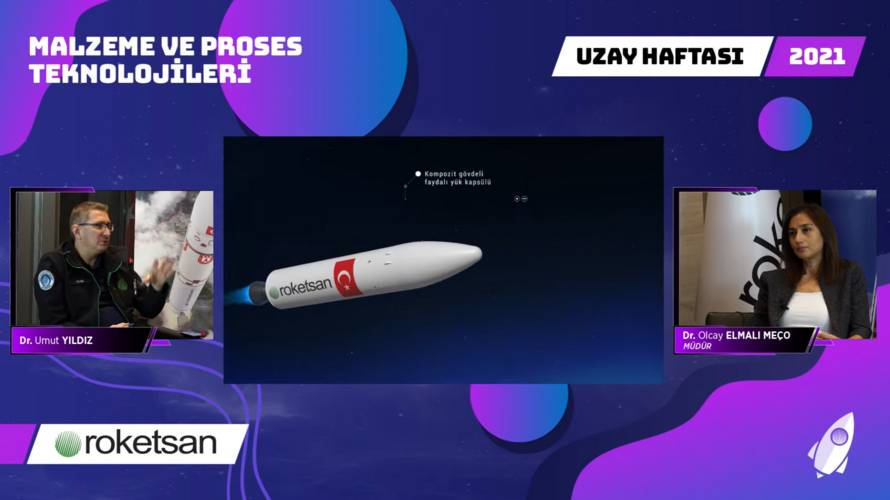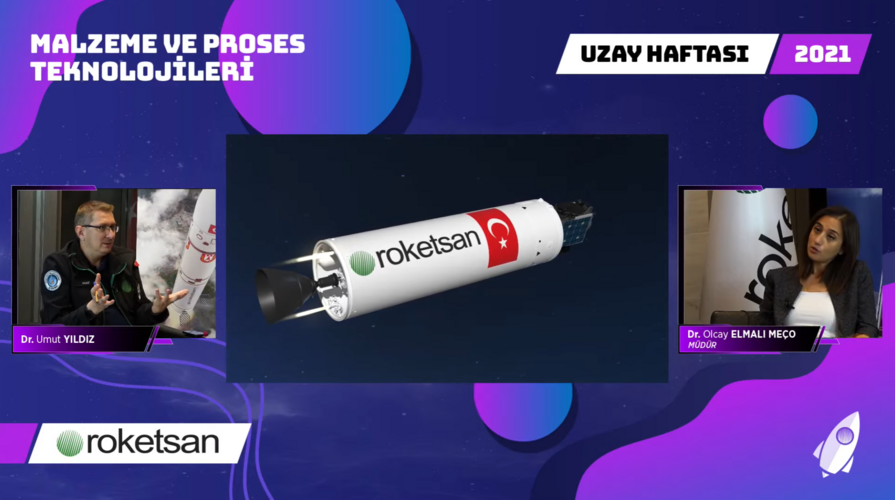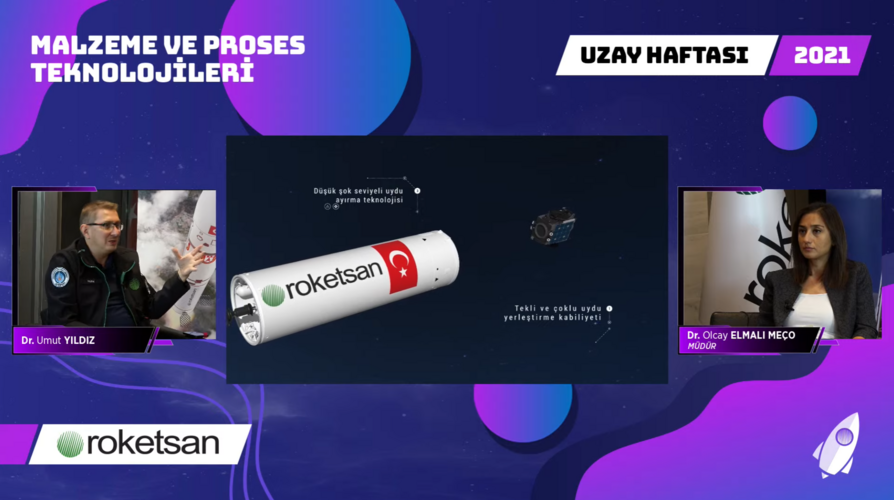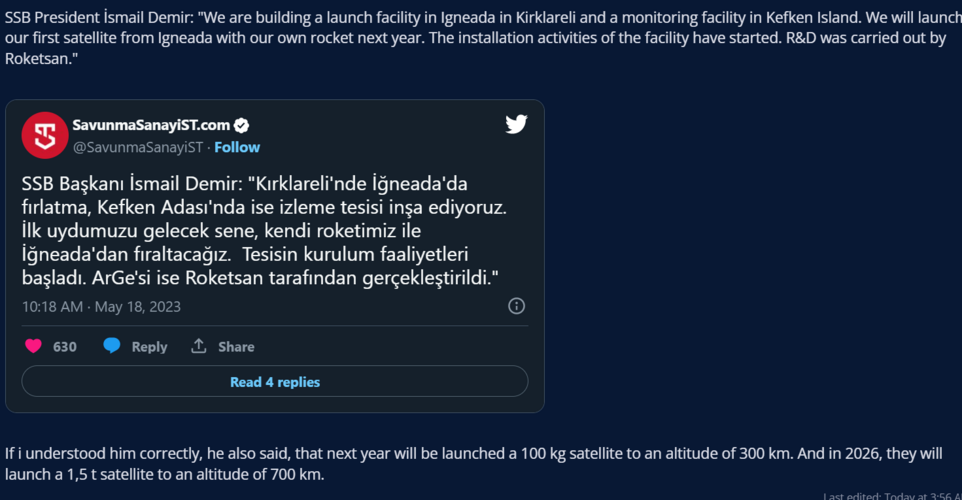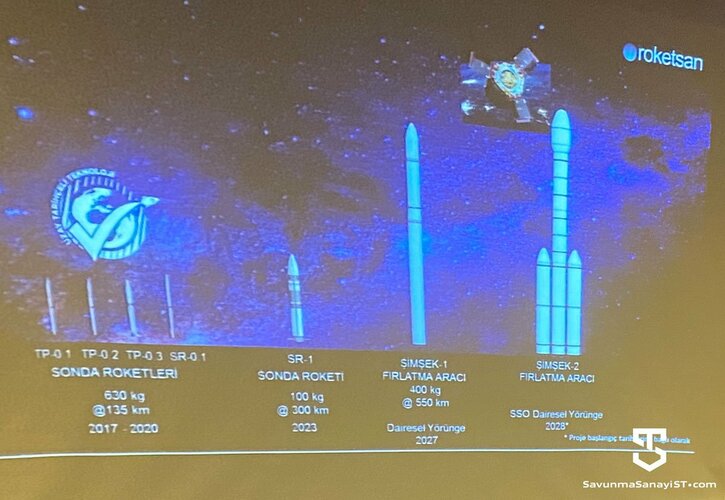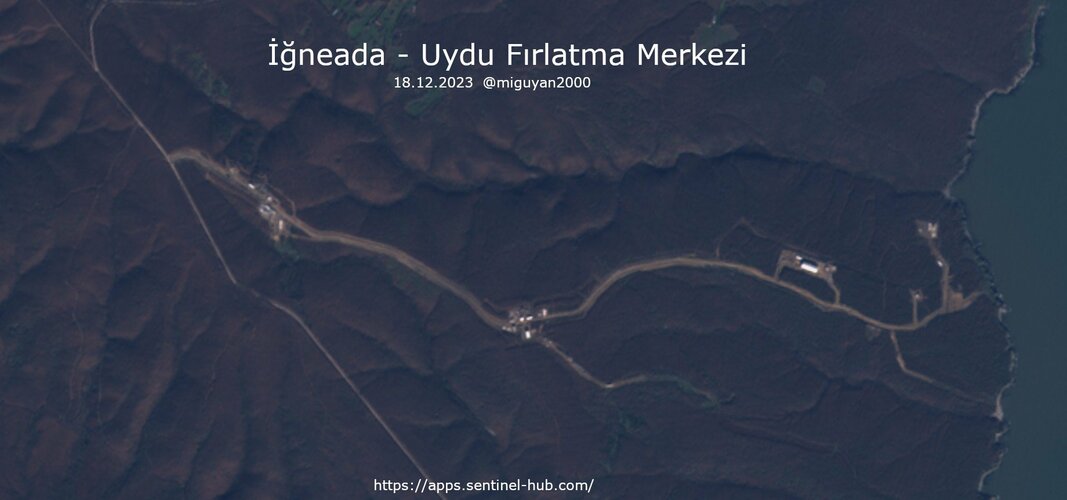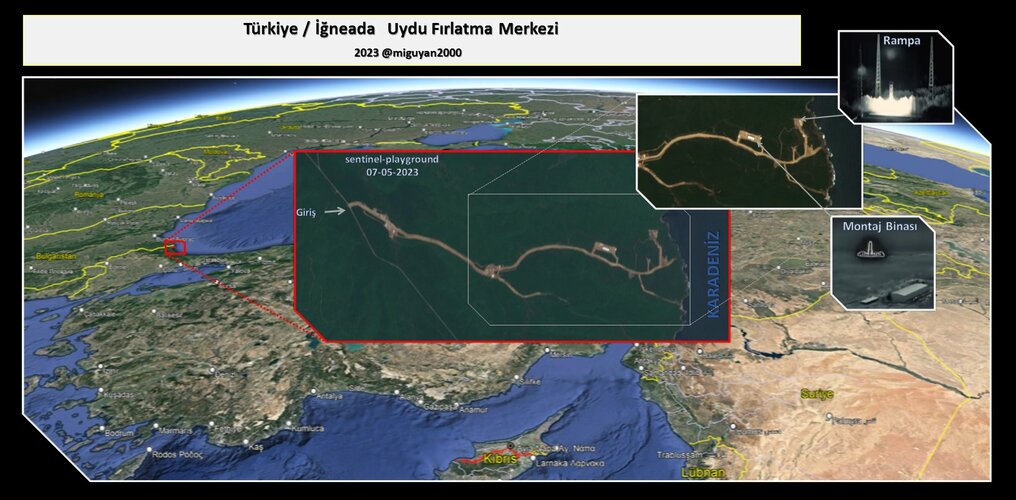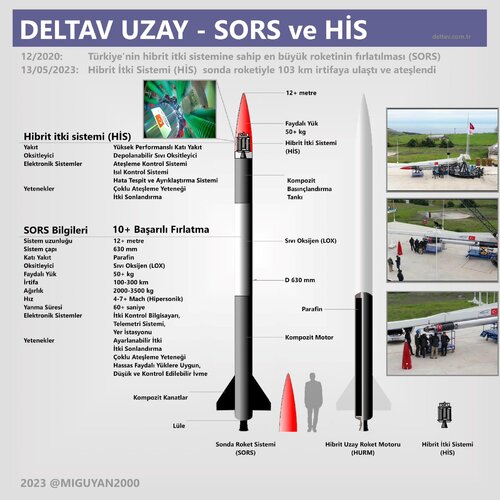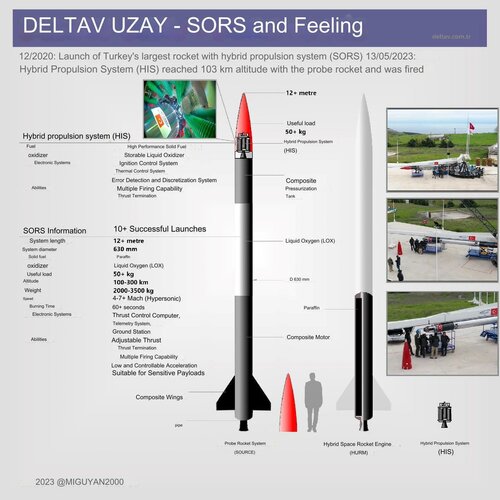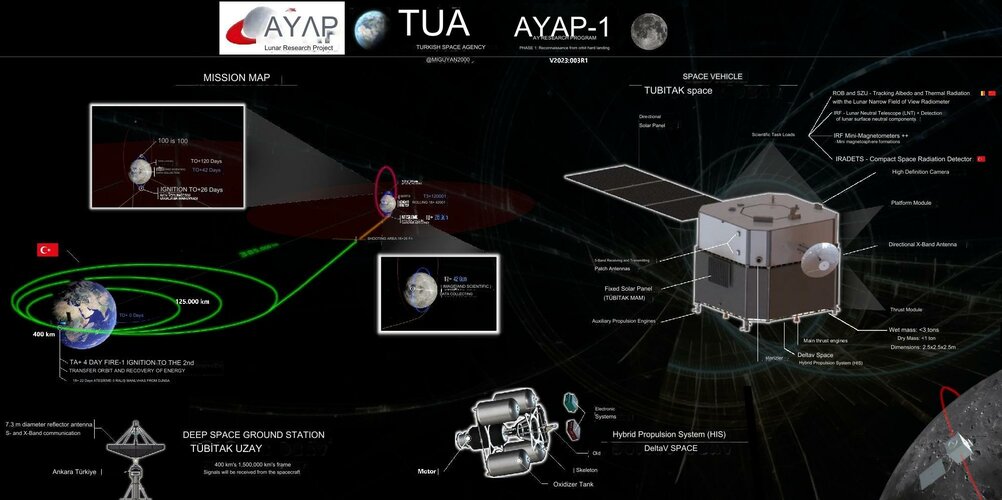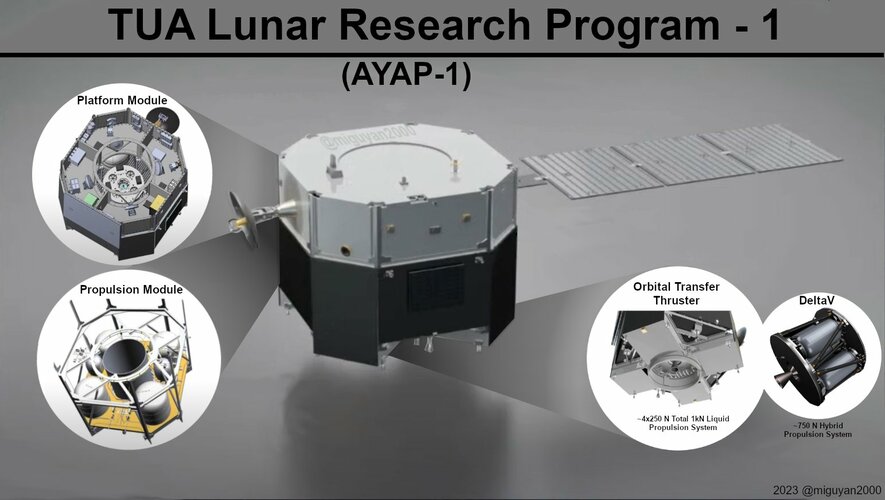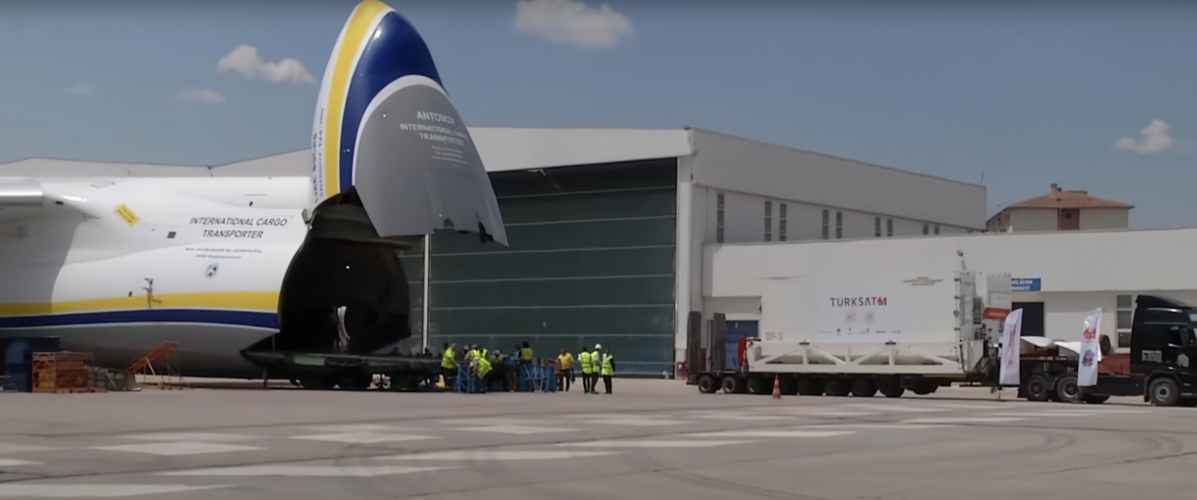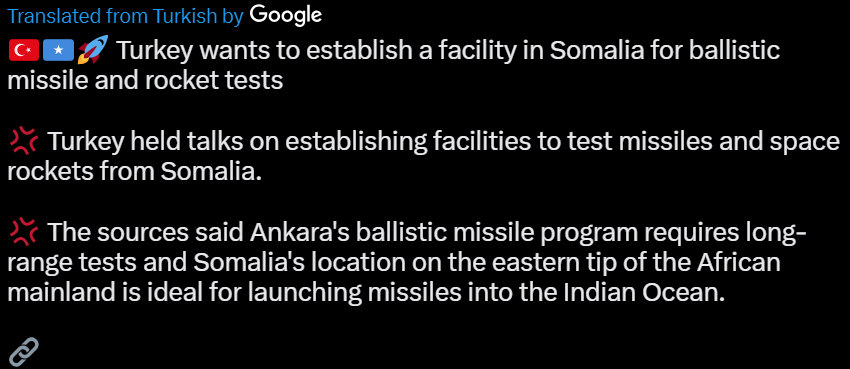Last August,
Baykar CTO Selçuk Bayraktar announced the establishment of a new company called
Fergani, capable of competing in the
space field even with big names like
SpaceX, founded by
Elon Musk. We saw the first concrete steps taken before the end of their first year, as the
Fergani Team Satellite Project was launched.
After last year’s
Teknofest, Baykar Defense Technical Director
Selçuk Bayraktar participated in a TV program and shed light on the future of the company, pointing to
space. Indeed, the future of
aviation and
technology lies here.
Of course, we can say that the company started with hand-launched aerial vehicles, followed by the
650 kg Bayraktar TB2 and then the
6-ton Akıncı, which means they are making solid progress. We know that the next target is the development of the
unmanned fighter jet project MIUS/Kızılelma in the next
15-year period.
However, the company seems to be turning its face to
space in the near future, if not entirely. As
Selçuk Bayraktar stated that they founded a new space and aviation company called
Fergani and that they could compete with big companies like
SpaceX in some areas and also work together with their projects. Indeed, the first project emerged before the end of the announcement year.
The
Team Satellite Project, developed by
Fergani, a subsidiary of
Baykar, has rolled up its sleeves for the satellites to be developed within Baykar using
domestic resources, including subsystems. It was revealed that the
first test satellite is planned to be launched in
2024. Right after that, we may see many experimental satellites. However, Fergani will not just produce and send satellites into space. So, what can we expect?
What will Fergani do?
Fergani will initially start developing
low Earth orbit satellite systems. Here, like
SpaceX’s Starlink satellite internet company, it will focus on transporting small-sized satellites to
LEO orbits (160 km – 2,000 km).


